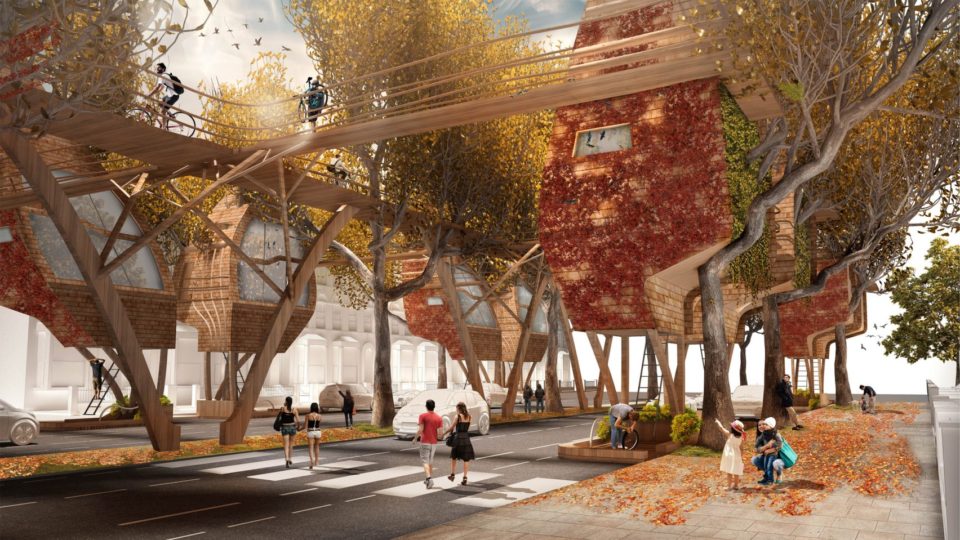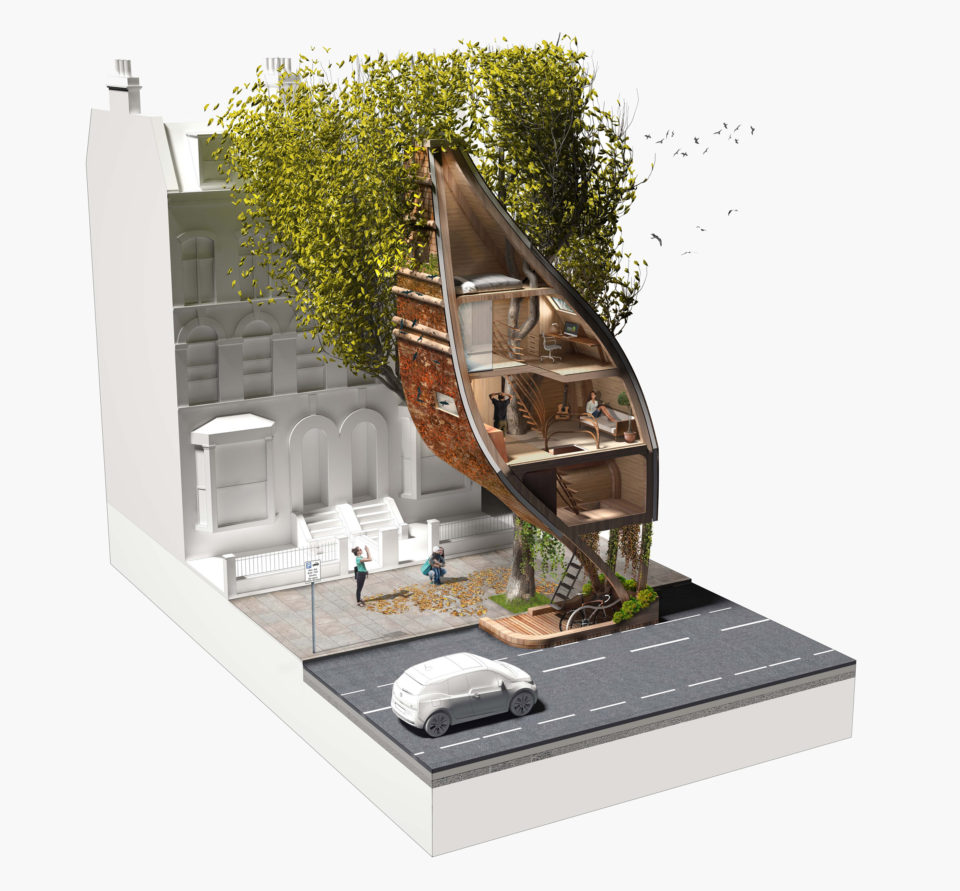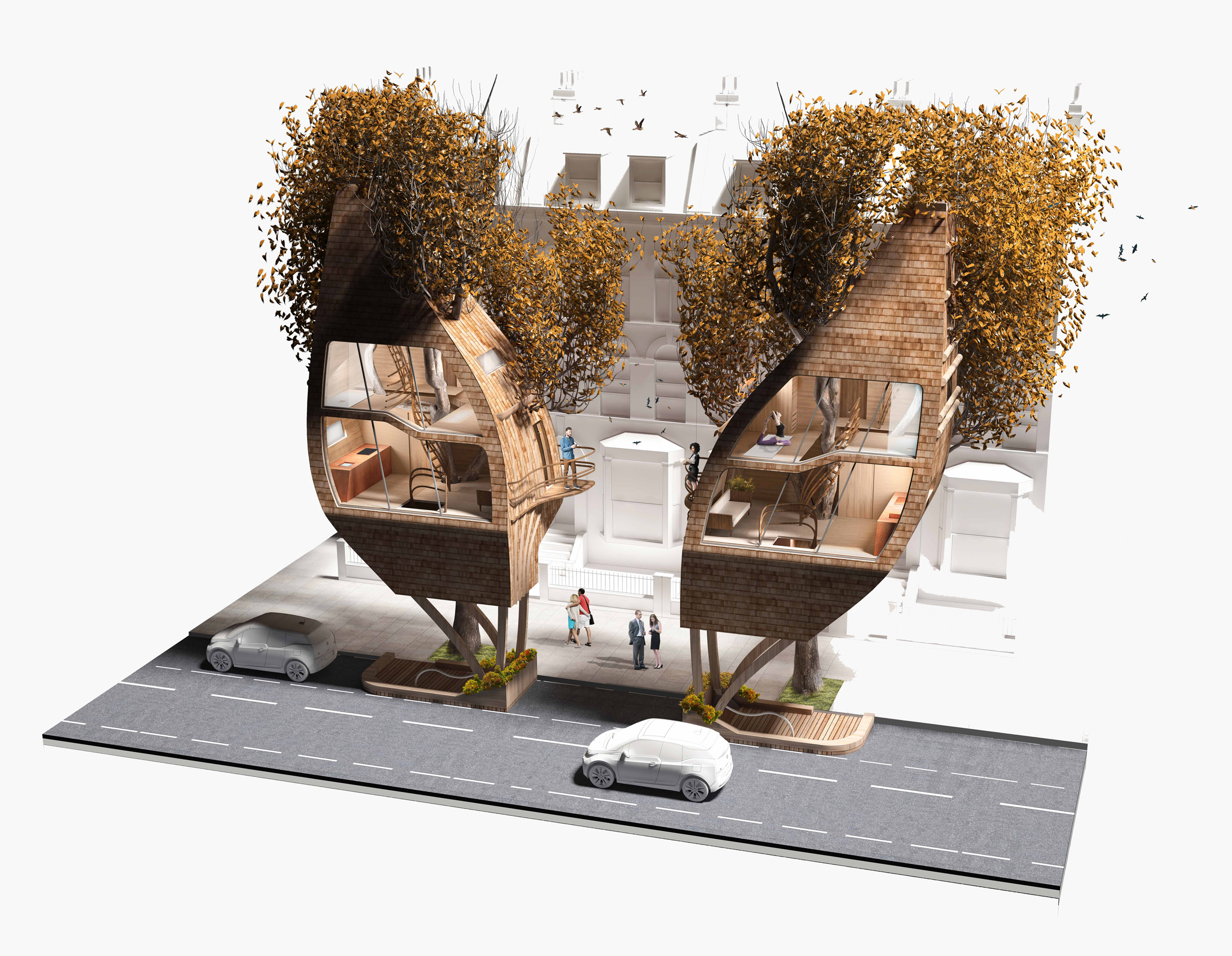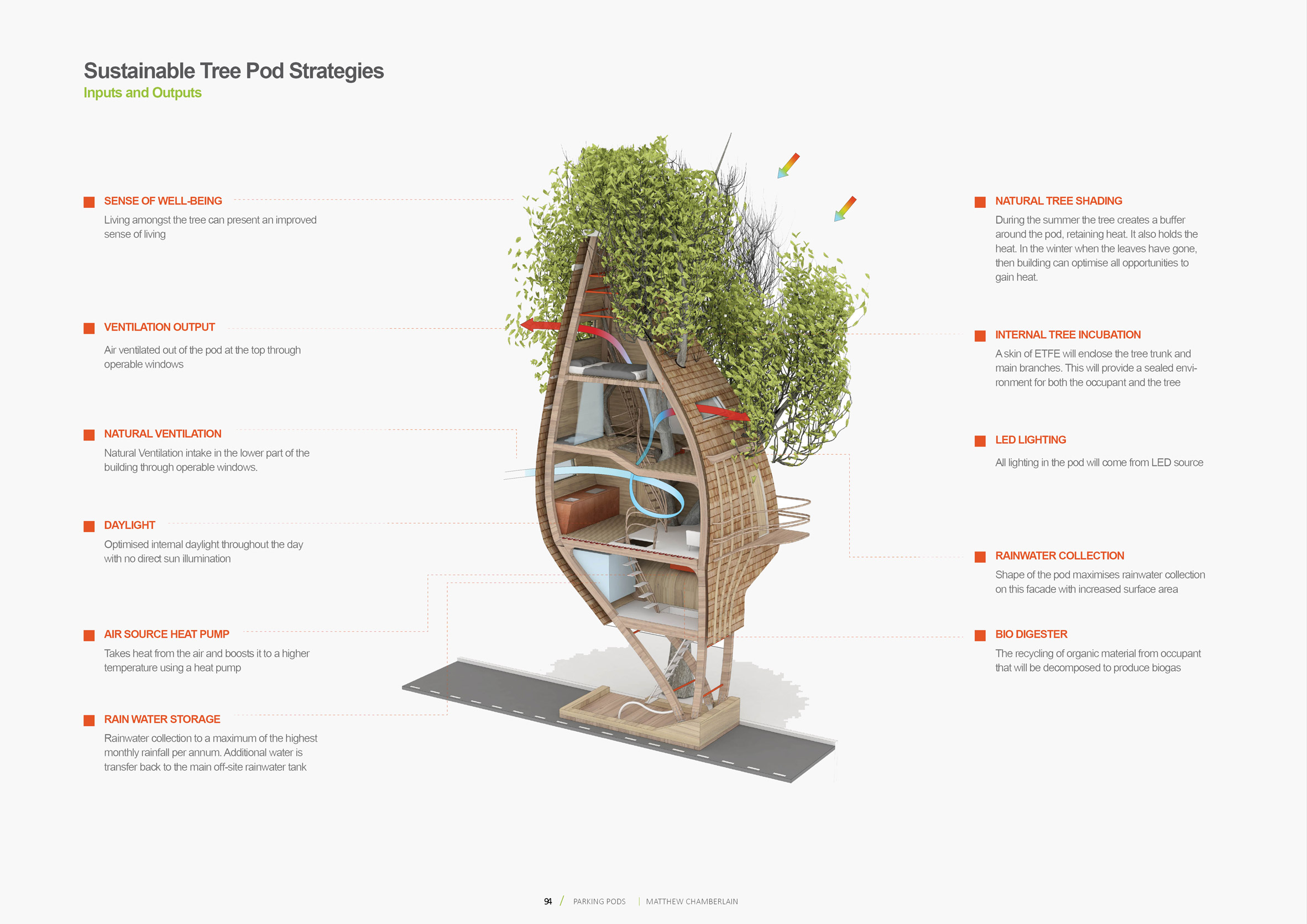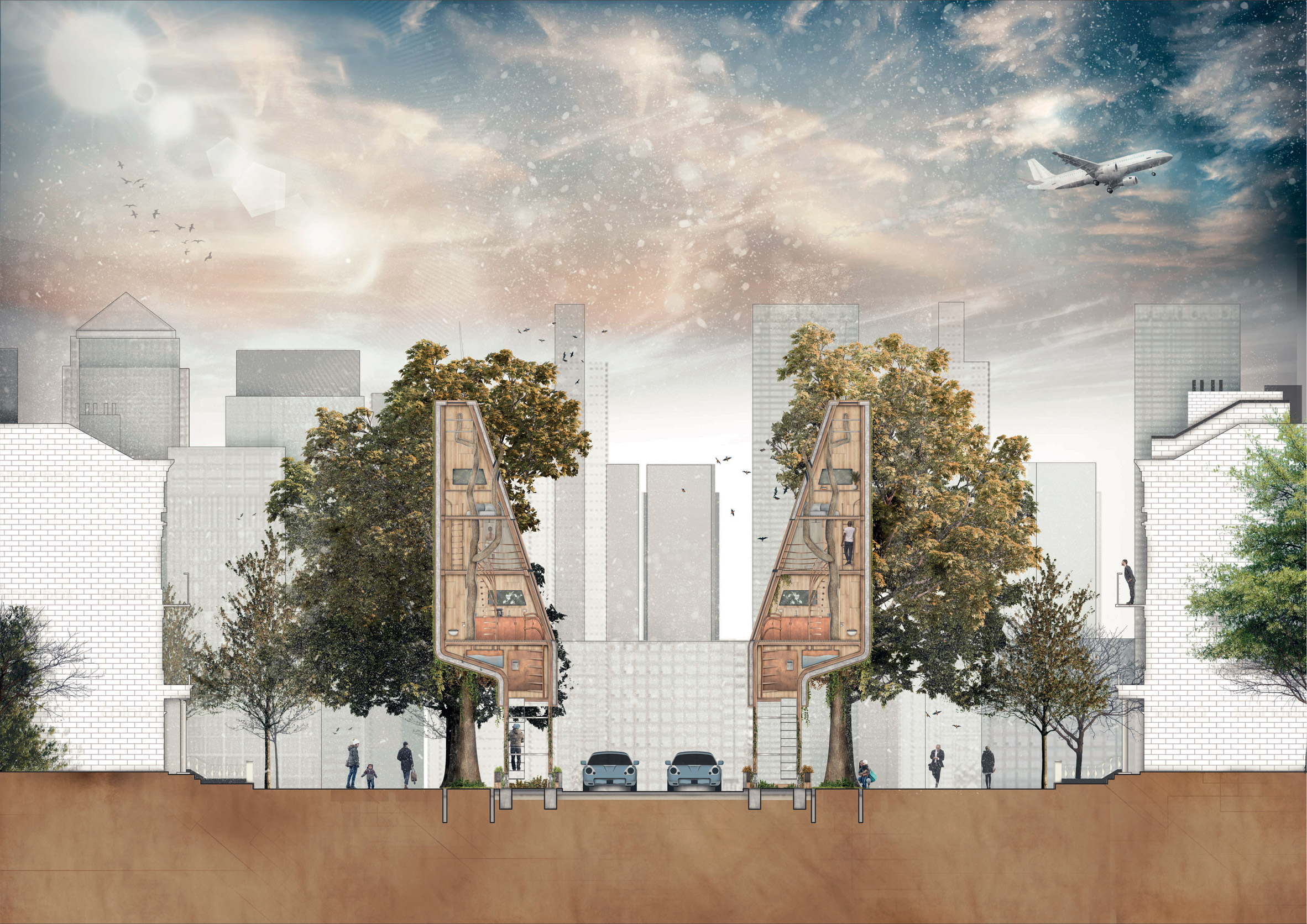Like urban treehouses, each of these “street tree pods” rises from a parking space to nestle within the branches of a tree, providing compact, low-cost living space for people in need of housing. University of Westminster graduate Matthew Chamberlain envisions these organically shaped portable dwellings as a potential way to address the housing crisis in cities like London, where there simply aren’t enough places for the population to live.
The design mimics the natural process known as “inosculation,” in which two trees merge together as they grow. Covered in cedar shingles and shaded by the trees, with bird houses built into their roofs to avoid displacing urban wildlife, the pods collect their own rainwater and use a bio-digester to handle waste. These urban treehouses would be built around the tree trunks, using rubber gaskets to accommodate their growth.
Inside, the four-floor dwellings include a utility room on the lowest level, a kitchen and living space with a bathroom and balcony on the second level, workspace and storage on the third level and a lofted bedroom at the very top. Doors at the third level of each tree house pod could connect to an elevated boardwalk for pedestrians and cyclists.
“Street Tree Pods seeks to offer a fresh insight into urbanization and community living within London, tackling and challenging both the current housing crisis and the growing pollution issues within the city. These self-sufficient, low impact urban tree pods merge the house and street tree together, facilitating humans innate attraction towards nature and natural processes, along with focusing on the importance of wellness and sustainable architecture.”
Chamberlain says he imagines the Street Tree Pods being most useful for people who have trouble accessing traditional housing, like those transitioning from homelessness, students, young professionals or first-time home buyers. A theoretical near-future transition to more car- and ride-sharing and fewer personal vehicles in cities could free up lots of parking spots, making space for experimental housing of all kinds. But realistically, this program would have to include a serious built-in dedication to affordability to make a real impact, lest it get taken over as the latest Airbnb craze.
You can read Chamberlain’s proposal in full, including details on how the pods would function and be built, at Issuu.com.
